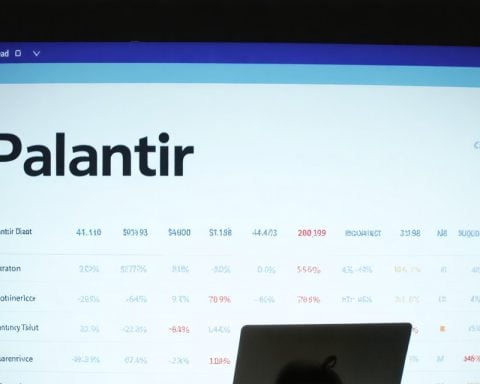A New Era in De Soto
The world’s largest electric vehicle battery plant is set to change the landscape of De Soto, Kansas, representing a significant breakthrough for Panasonic and the local economy. Just under a year after breaking ground, the plant is gearing up for its production phase, signifying rapid progress before any batteries have even been manufactured.
Panasonic’s president noted the company’s commitment to investing over $1 billion in Kansas, emphasizing that such financial input symbolizes dedication to the community. Recently, Governor Laura Kelly highlighted a new incentive program aimed at attracting major companies, ensuring that these incentives are contingent on actual production milestones.
Local leaders have already started witnessing financial benefits. The De Soto mayor proudly mentioned a property tax reduction for homeowners, viewing the battery plant’s arrival as just a step towards a more resilient and transformed future for the region. Economic forecasts predict a considerable labor income boost of $500 million, coupled with an anticipated $2.5 billion return on this investment.
Additionally, community infrastructure improvements, including upgrades in wastewater treatment and energy accessibility, set a solid foundation for growth. As the facility approaches its grand opening, plans indicate hiring may rise to 4,000 workers by 2026, with a growing network of suppliers expected to flourish alongside this ambitious project. The future looks promising for De Soto, marking the onset of a significant economic chapter.
Transforming De Soto: A Catalyst for Change
The establishment of Panasonic’s electric vehicle battery plant in De Soto, Kansas, is poised to usher in profound changes that extend far beyond the local economy. As the world pivots toward sustainable practices, the rise of electric vehicles (EVs) reflects a larger societal shift towards clean energy, driving innovation and reshaping our culture. The implications of such a monumental investment are far-reaching, influencing global economic arenas and advancing new norms.
In the global context, this plant plays a pivotal role in the burgeoning EV market, which is projected to grow at a compounded annual growth rate (CAGR) of more than 20% over the next decade. With the impending demand for electric vehicles, this facility will facilitate the United States’ ambitions to become a leader in EV production, diminishing reliance on foreign battery supplies. As clean technologies gain traction, increased investment in renewable energy sources becomes paramount, potentially stabilizing the volatile fossil fuel markets.
Further, the socioeconomic fabric of De Soto will likely witness a transformation; diverse job opportunities and an influx of skilled labor can help revitalize the community. The push for infrastructure improvements, including advanced energy systems and efficient waste management, signifies a commitment not only to economic growth but also to environmental stewardship.
As De Soto stands on the precipice of this new chapter, the significance of Panasonic’s investment will extend well beyond its immediate economic impact, representing a pivotal moment in the sustainable energy revolution.
De Soto’s Electric Battery Plant: A Game Changer for Local Economy and Innovation
A New Era in De Soto
The arrival of the world’s largest electric vehicle battery plant in De Soto, Kansas, represents a pivotal moment not only for Panasonic but also for the local economy. As the facility gears up for production, several key insights emerge regarding its implications, features, and the broader context of electric vehicle developments in the region.
Key Features and Innovations
1. Cutting-Edge Technology: The new plant will utilize advanced battery manufacturing technology that aims to enhance production efficiency and product quality. Panasonic plans to implement innovations that could lead to faster production cycles and improved battery life.
2. Sustainability Initiatives: The facility is expected to focus on sustainable manufacturing practices, which may include the use of renewable energy sources and initiatives to reduce waste, aligning with global trends toward eco-friendly production.
3. Local Workforce Development: Plans for extensive workforce training programs are in place to ensure that the local labor force is equipped with the necessary skills for jobs in the rapidly evolving electric vehicle industry. This investment in human capital is expected to foster long-term economic resilience.
Economic Impact and Community Benefits
– Job Creation: The production phase is projected to create up to 4,000 direct jobs by 2026. This surge in employment opportunities will not only benefit the local economy but will also attract talent from surrounding areas.
– Increased Tax Revenues: The De Soto mayor highlighted the anticipated rise in local tax revenues from the plant. This influx is expected to enable further infrastructure improvements and community services, enhancing the quality of life for residents.
– Support for Small Businesses: The establishment of a large battery manufacturing facility could stimulate growth for local suppliers and small businesses, creating a ripple effect that can uplift the entire community.
Pros and Cons
Pros:
– Significant job creation opportunities.
– Enhanced local infrastructure and services.
– Potential for sustainable manufacturing practices.
Cons:
– Community concerns regarding environmental impacts during construction.
– The potential for labor shortages if the local workforce cannot meet demand.
Market Analysis and Future Trends
The growth of the electric vehicle market is poised to influence global manufacturing trends. With increasing demand for electric vehicles anticipated in the coming years, investments in battery manufacturing are crucial. Analysts predict that sodium-ion and solid-state batteries will gain traction in the next decade, prompting manufacturers like Panasonic to innovate continuously to stay competitive.
Pricing and Investment Insights
Panasonic’s investment exceeding $1 billion is a clear indicator of its confidence in the electric vehicle market’s future. This substantial funding aligns with broader economic forecasts that suggest a potential $2.5 billion return on investment for the region, emphasizing the project’s importance not only for De Soto but for Kansas’ economic landscape as a whole.
Security Aspects
As with any large-scale manufacturing operation, there are necessary security considerations. Cybersecurity measures will be integral to protecting sensitive data related to battery technology and production processes, ensuring operational security from external threats.
In summary, the electric vehicle battery plant in De Soto marks the beginning of a transformative journey for the area. With investments directed toward technological advancements, community infrastructure, and workforce development, De Soto stands on the brink of a significant economic renaissance, reflecting broader trends in the electric vehicle market.
For more details on Panasonic’s initiatives and community integration, visit Panasonic.


















